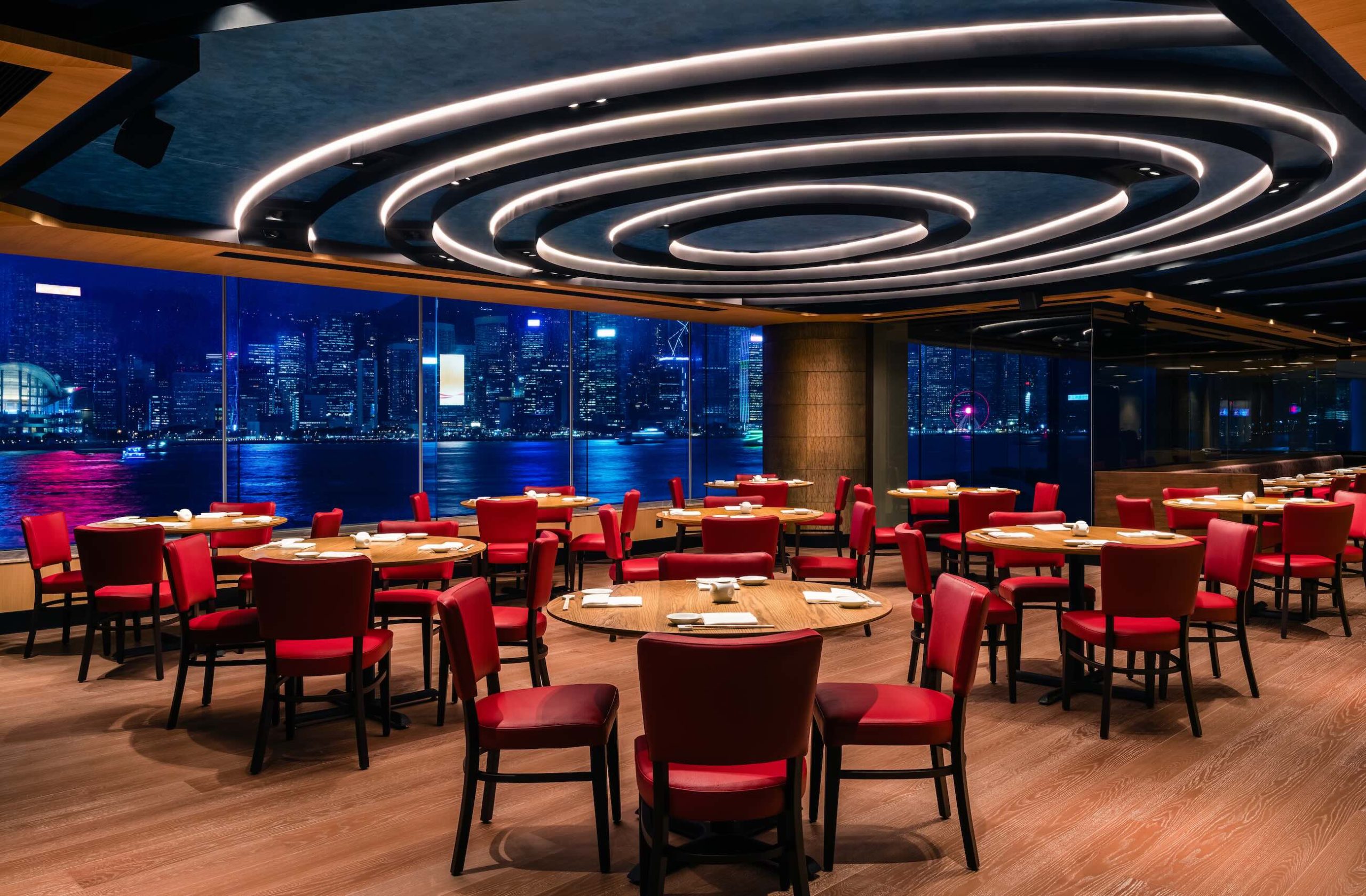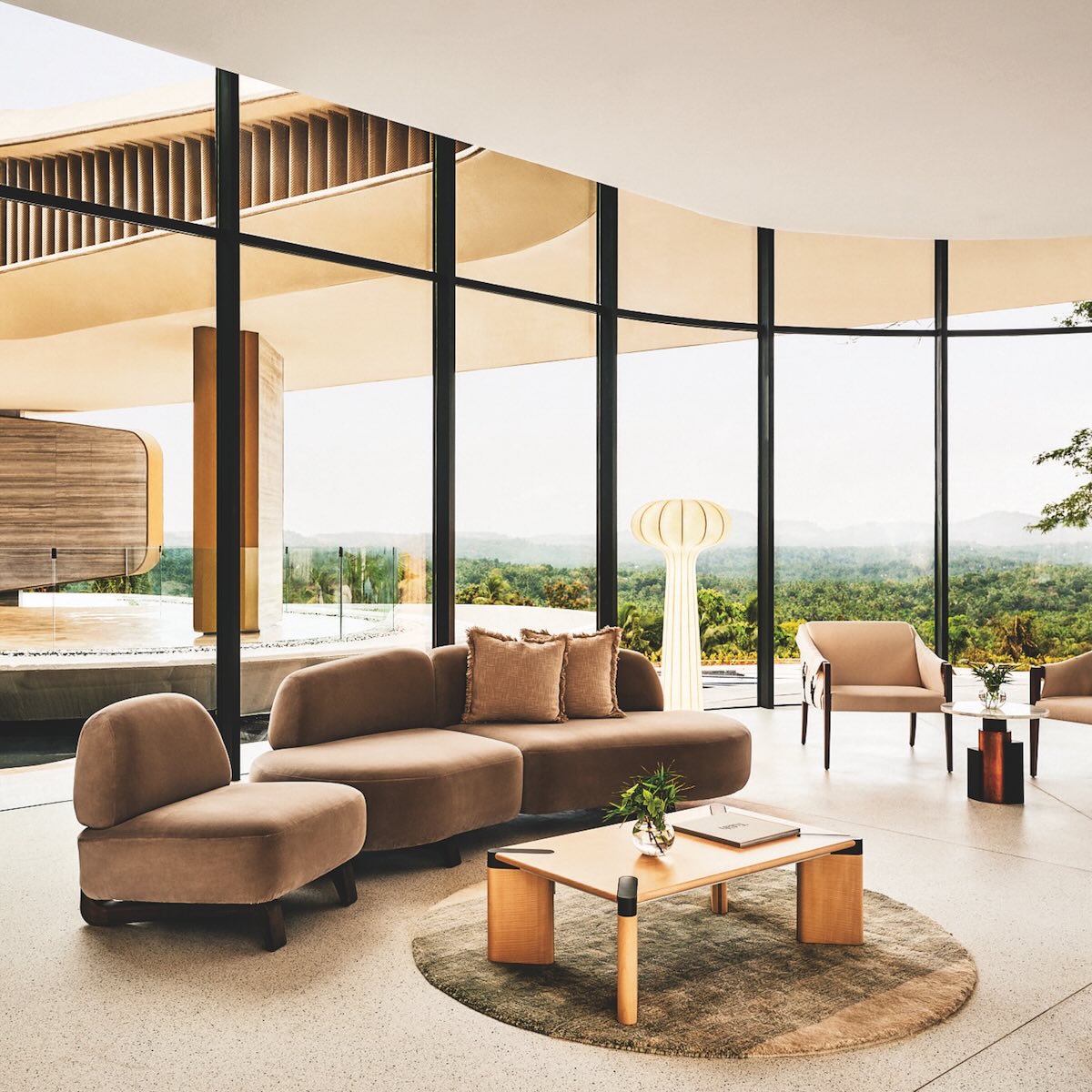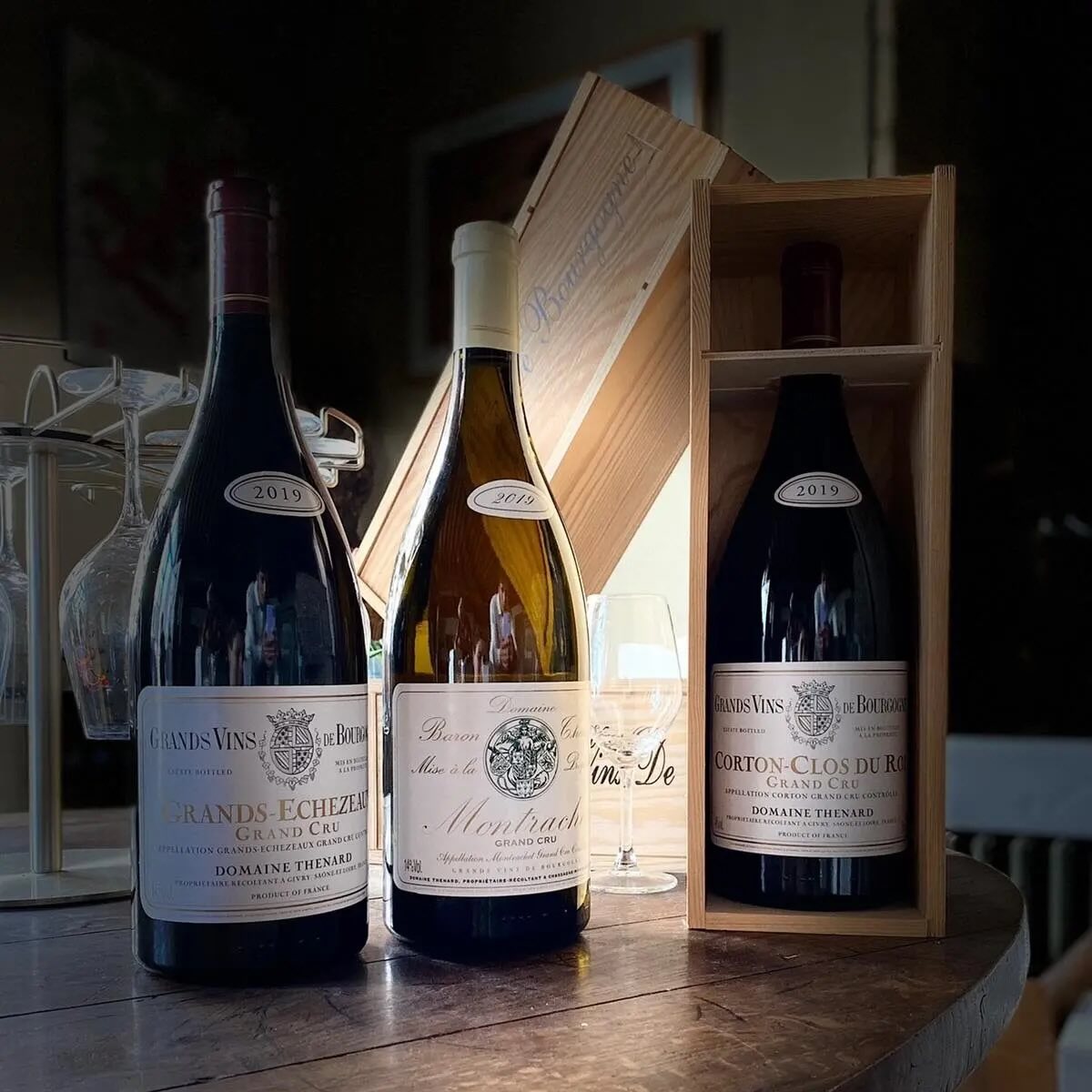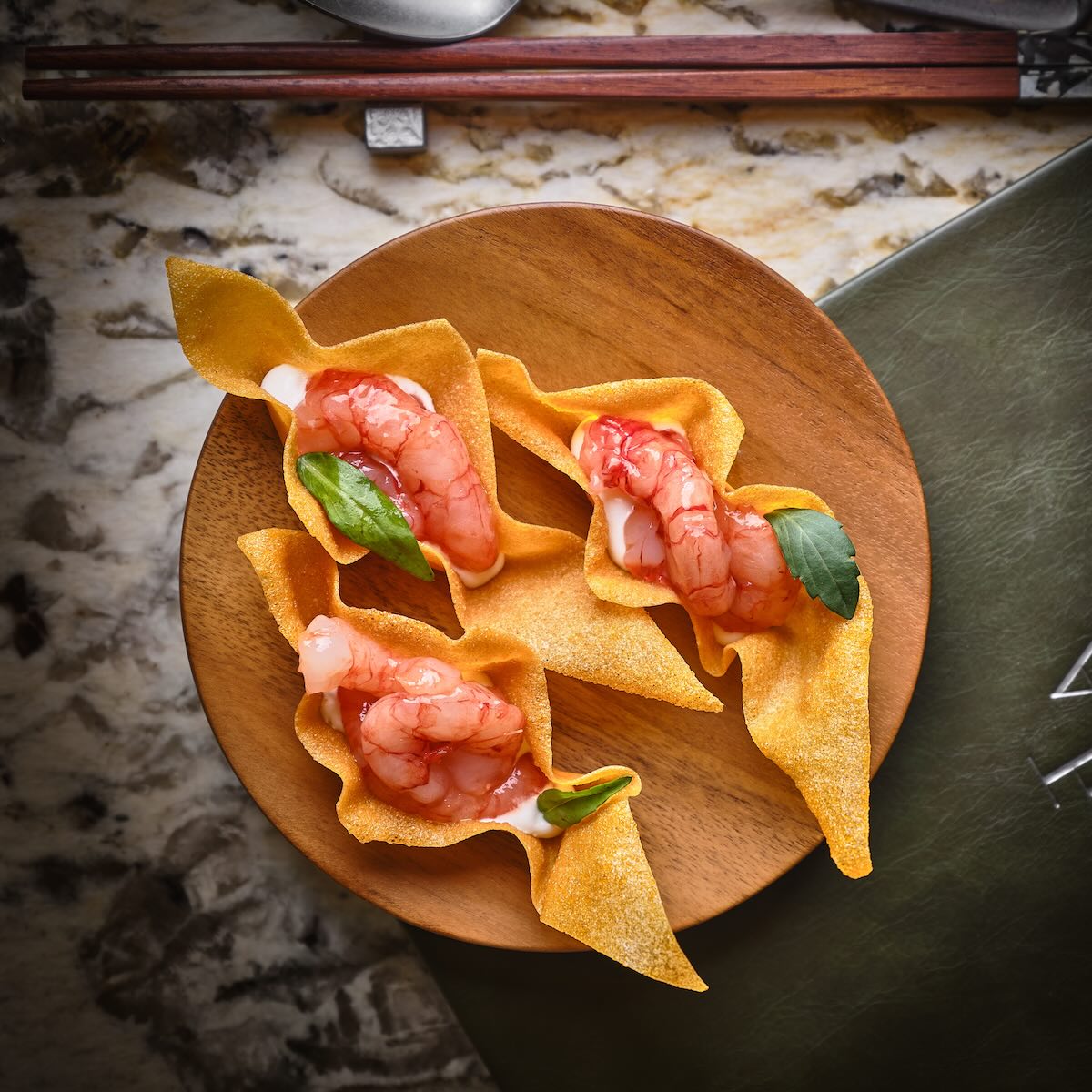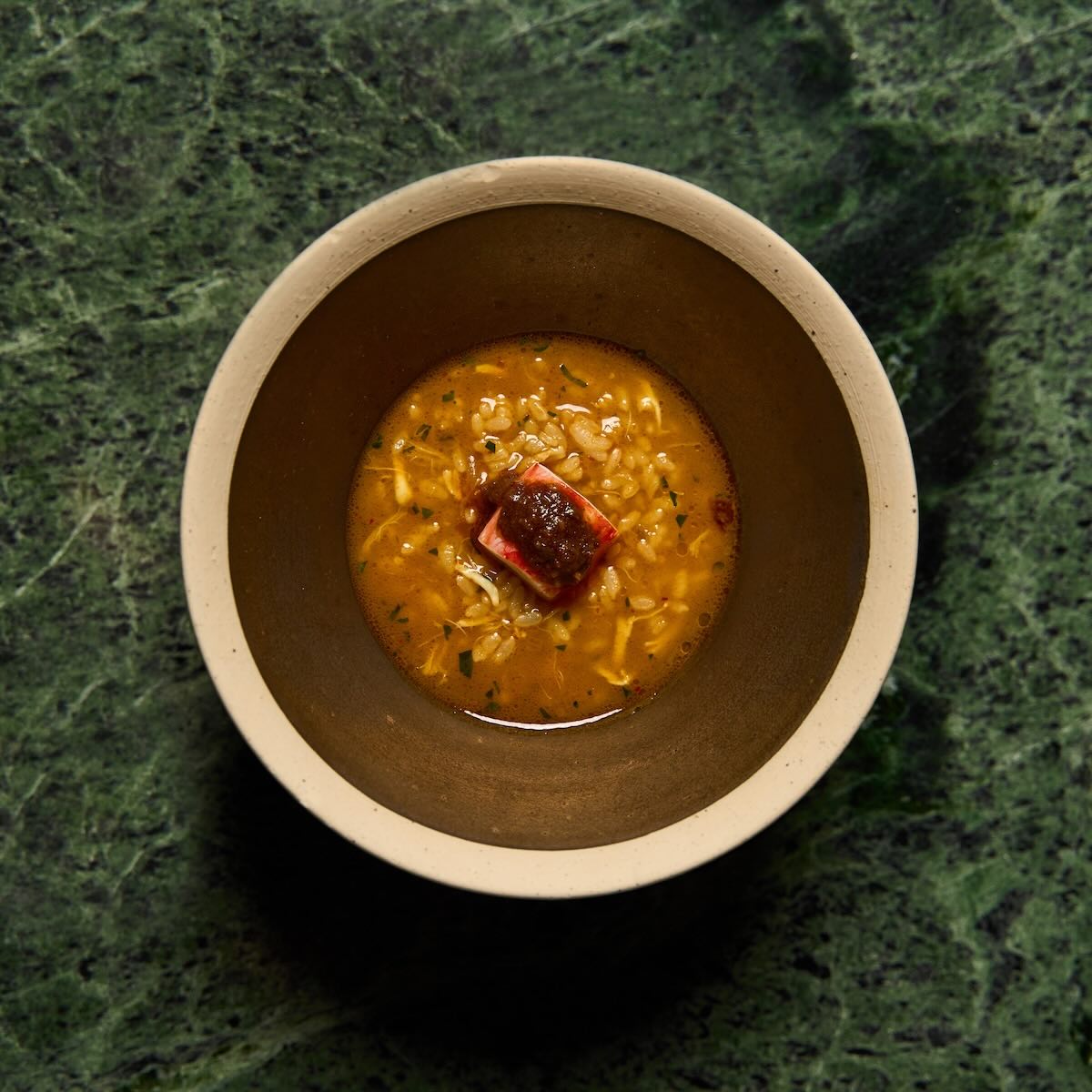Regent Hong Kong celebrated its grand reopening last month. On its return to Victoria Harbour, it brought another icon along for the ride: the no-introductions-needed Japanese-Peruvian restaurant, Nobu, which had been a cornerstone of the InterContinental Hong Kong and remained in business until the hotel underwent a full renovation three years ago.

As a concept, Nobu Hong Kong is not new—it builds upon years and years of success that the now-famous chef has achieved the world over. It has operated at the InterContinental Hong Kong for 14 years. But when it first opened in late 2006, it was only Nobuyuki “Nobu” Matsuhisa’s sophomore effort in Asia, which seems unthinkable now, considering the veteran chef has over 50 locations of his singular Nobu concept spread across the world.

A household name like Matsuhisa’s needs little preamble, but a brief review of his life’s achievements so far feels like an apt tribute to the man who has endeavoured, and succeeded, to bring Japanese cuisine into the modern age through a delicate injection of different cuisines. Hailing from Saitama, Japan, Matsuhisa began his training and career in Tokyo before opportunity took him to Peru, leading him to Nikkei cuisine and the beginnings of his signature style of cooking—Japanese cuisine married with Peruvian influences.
Matsuhisa’s exciting cuisine brought A-listers to his door and still feeds a dedicated following of gourmands many decades later, but it was not an easy climb to the top. Nobu is now recognised as a status symbol, but it demanded a gruelling journey of trials and tribulations. Matsuhisa left Peru after a disagreement with his business partner, completed a stint in nearby Argentina, and eventually went back to Japan with his family, where opportunity found him again—this time in Alaska. His restaurant in Anchorage was short-lived, and it was not until 1987 that he finally stood on solid ground with the opening of the eponymous Matsuhisa in Los Angeles. Soon after, the celebrities came knocking—leading to Nobu in New York, founded jointly with Robert De Niro, among others. A year later, in 1995, a James Beard award for Best New Restaurant followed, and the rest is history.
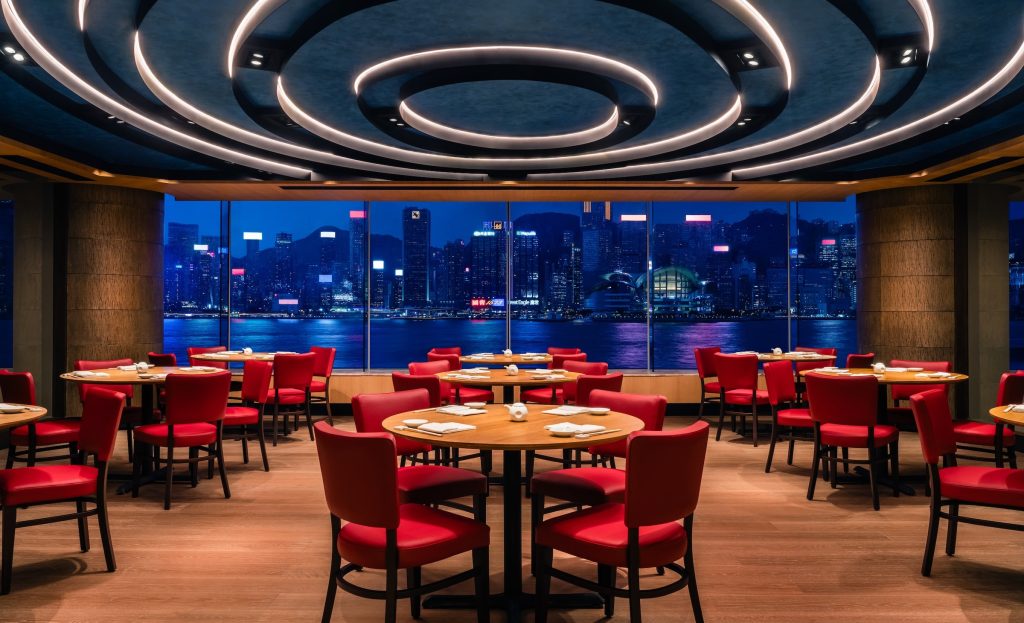
Among his many restaurants, however, “Nobu Hong Kong is close to my heart, as it was only my second opening in Asia. I was dismayed when we made the decision to close the restaurant, but I always had the goal to reopen,” said the chef in an official statement. “I am thrilled to reopen such an iconic location and am looking forward to its growth.”
Nobu regulars returning to the restaurant at Regent Hong Kong will be familiar with the menu; all the signature dishes that cemented the Nobu name in our lexicon have returned—and there is a reason why they have become mainstays of the restaurant all these years later.
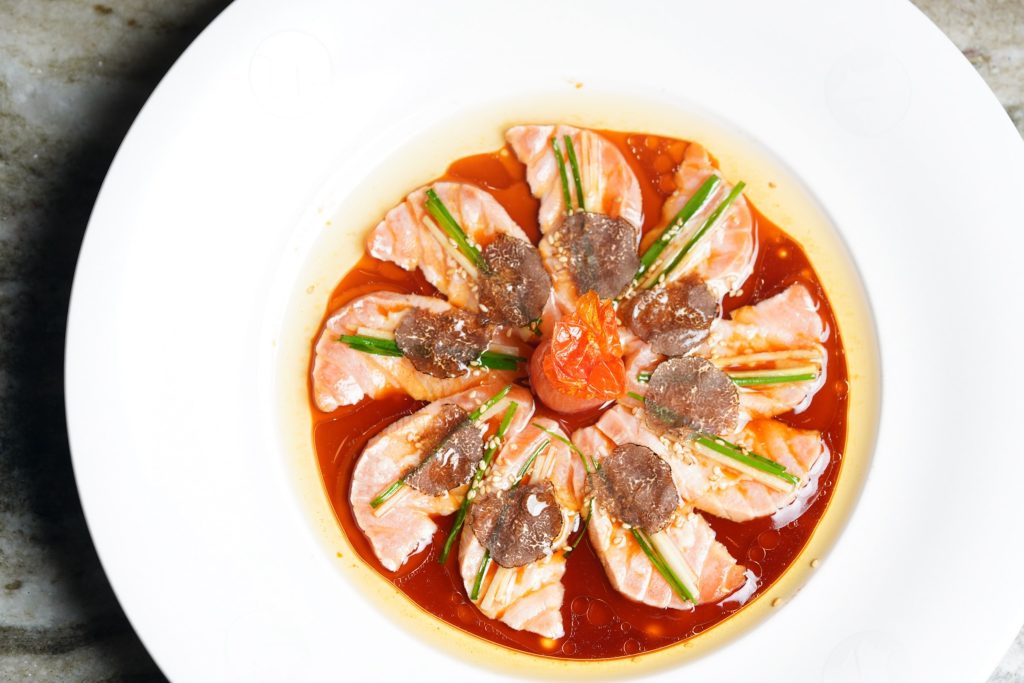
“Most of my signature dishes have a personal story behind them. When I first served sushi in Los Angeles 30 years ago, a lot of people liked their fish cooked, not raw. I once had a customer send back a sashimi dish because she would not eat raw fish,” the veteran chef tells Robb Report Hong Kong. “I wanted to find some way to salvage the dish, so I grabbed hot oil that was sitting on the stove and poured it over the fish, searing it on contact.” Even then, he says, “the customer was hesitant when I asked her to try it, but she ate every bite.”

And the dish that is the centrepiece of this story is none other than the new-style sashimi that now appears on the menu of every Nobu around the world. Other items that the chef is world-renowned for are the black cod with miso, a classic that is synonymous with the Nobu concept and is even served on VistaJet private flights, and the Nobu ceviche, a creation stemming from his time spent in Peru. Another well-recognised dish on the menu is the yellowtail jalapeño, a happy accident that was born out of a staff meal of leftover ingredients. Matsuhisa admits to the dish’s simplicity, but “the heat of the jalapeño enlivens the milder yellowtail” over a bed of yuzu soy sauce and fresh coriander topping.
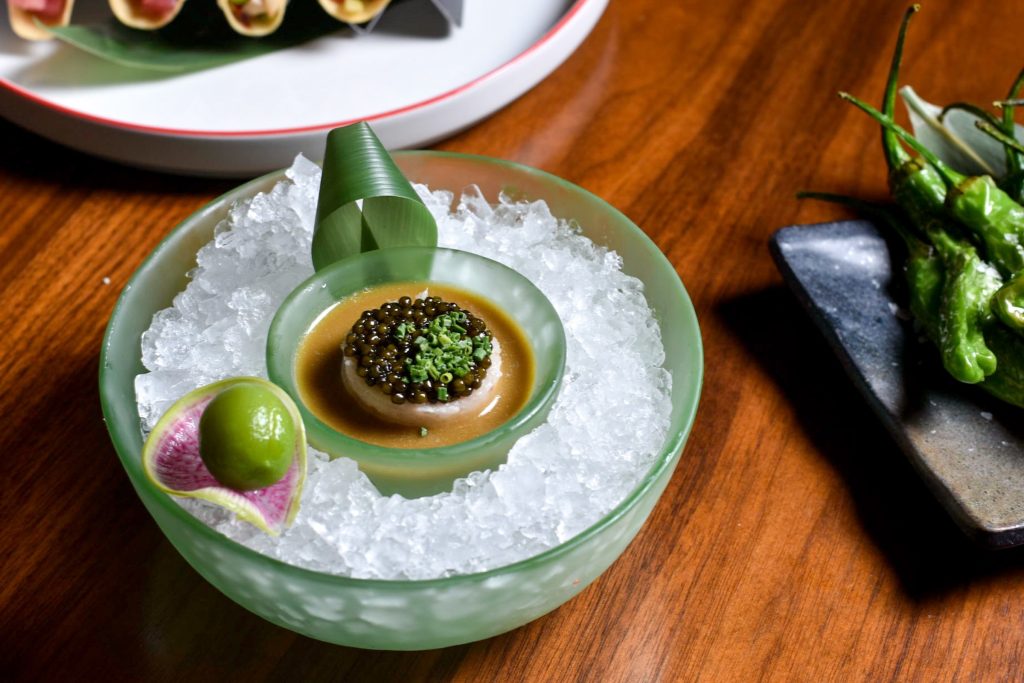
Next-wave Nobu dishes, such as the pan-fried scallops with yuzu truffle, umami Chilean sea bass, and baby spinach salad with dry miso with grilled shrimp with crispy yuba bean curd skin, exemplifies Matsuhisa’s continuous experimentation with Japanese and Peruvian flavours and produce. Furthermore, what also sets the Nobu experience apart is its attention to pairing beverages— the Matsuhisa Chardonnay and Matsuhisa Cabernet Sauvignon from California and Nobu Champagne were designed to harmoniously complement the food, while Hokusetsu was tapped to brew the exclusive sake for the restaurants worldwide.

“Return guests can expect the consistency that is the foundation of our brand, [while] diners new to Nobu can expect quality ingredients, exceptional service, and inspired cuisine. Our chefs will start by executing our signature dishes, while developing an understanding of the Nobu vision and philosophy. We will source ingredients from local vendors in order to make the Hong Kong experience unique,” Matsuhisa continues, when asked about how the reopening will bring new things to the table for a seasoned audience.
In terms of the restaurant design, Nobu Hong Kong has retained many of the signature interior accents of the brand with some new surprises thrown in, the chef reveals, but “the original design is still very much a part of the space.” A small Zen garden has been added to the entrance and the “sea-urchin ceiling” has been updated to a deep blue.
It has been almost three decades since Matsuhisa founded the restaurant with his business partners, but the brand remains strong in the international market. New openings are scheduled in Madrid, New Orleans, Bangkok for 2024, to mention a few, so there must be a secret to his success in keeping Nobu brand relevant, even after all these years.
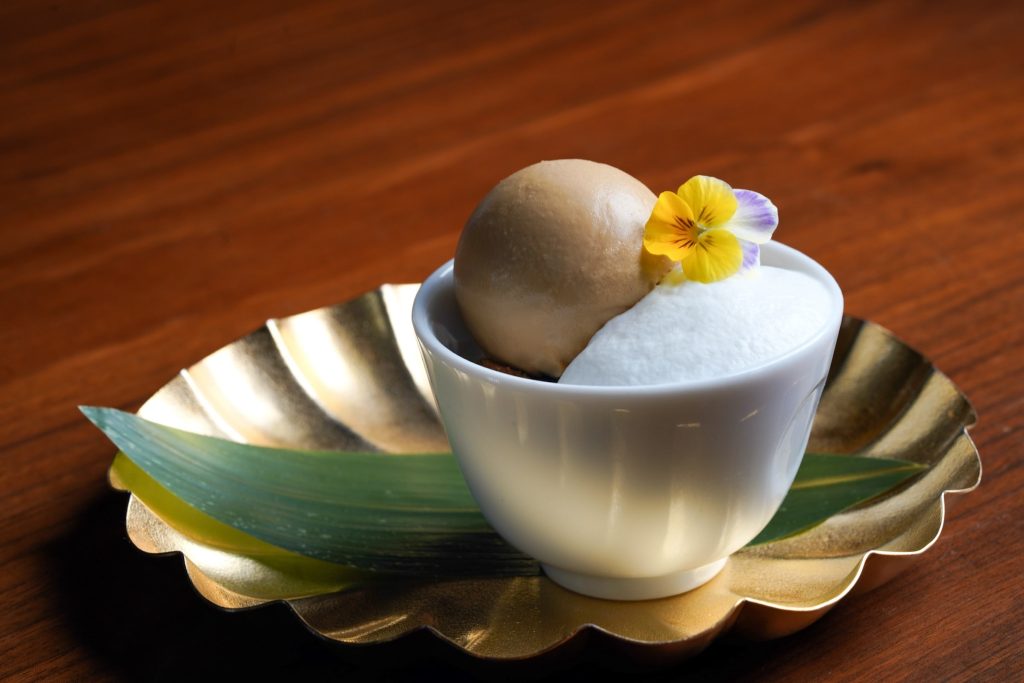
“Our expansion into hotels has played a major part in the brand staying relevant. It has allowed us to open in some of the most amazing cities around the world,” the chef reveals. “Another reason is our Nobu teams around the globe. We promote from within—dishwashers, bussers, waiters, and prep cooks become executive chefs and managers. Just like a family, it grows, and this kind of teamwork is vital to our success.”
Hong Kong’s executive chef Jason Au is a prime example of this theory in practice. Au joined Nobu 57 in 2007, trained with Matsuhisa, and was part of the opening teams in Dubai and Beijing as well as Nobu when it was still at the InterContinental Hong Kong. Now, he heads up the team at Nobu Hong Kong and puts Matsuhisa’s culinary vision on the table.
Meanwhile, Matsuhisa’s list of achievements continues to grow. Next year marks Nobu’s 30th anniversary. While the septuagenarian chef is no doubt looking ahead at what the next decade has in store, one thing he can take pride in now is that Nobu Hong Kong has been restored as a jewel in his empire’s crown—just in time for the restaurant’s pearl jubilee.
2/F, Regent Hong Kong, 18 Salisbury Road, Tsim Sha Tsui, Hong Kong
Tel: (+852) 2313 2313
All images courtesy of Nobu Hong Kong.





